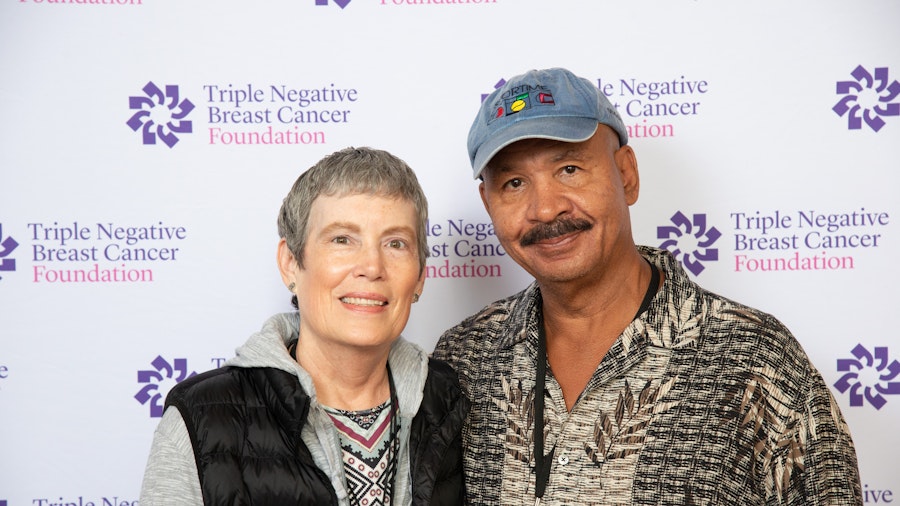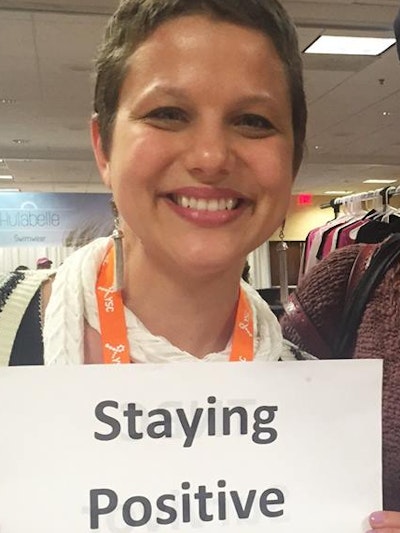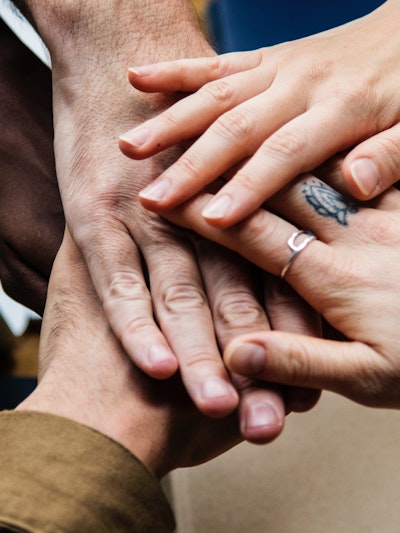Caregiving for your loved one with triple negative breast cancer may feel like a full-time job. But the more you prepare for tasks ahead of time and learn about what to expect, the more manageable your role as caregiver will be.
Become informed
Accompany your loved one to her appointments and ask the health care team for resources where you can learn about the diagnosis and treatment. If you need to speak with the health care team without your loved one present, she will need to give you written permission. This is because of the Health Insurance Portability and Accountability Act (HIPAA), which gives patients control over how their health information is used and shared with others.
If you choose to do your own internet research, stick to up-to-date and accurate websites. Foundations like the Triple Negative Breast Cancer Foundation and organizations like the National Cancer Institute www.cancer.gov provide accurate and oncologist approved information. The professional oncology social workers on our helpline can also help you learn about reliable sources of information.
Understand your rights
As part of the Family and Medical Leave Act (FMLA), most employers in the United States are required to provide up to 12 weeks of unpaid, job-protected leave per year for family members who need time to care for a spouse, child, or parent. Speak with your employer if you need unpaid time off.
Understanding insurance rules and regulations can also help your loved one avoid unnecessary costs and give you an idea of what additional services your loved one may need. Ask your insurance company if they can provide a case manager to help you. They may suggest federal and state programs such as Social Security, Medicare, and Medicaid.
Apply for financial help
There are many programs that help those who qualify get free or low-cost medications. Visit the website of the Partnership for Prescription Assistance www.pparx.org to learn more about these programs. There are also many local and national programs that provide other types of financial assistance, such as transportation help, medical supplies, and temporary housing/lodging. The website of the Cancer Financial Assistance Coalition www.cancerfac.org provides a database that allows you to search by cancer diagnosis or type of assistance. CancerCare and the Triple Negative Breast Cancer Foundation provide limited grants for cancer-related costs such as transportation and child care. These organizations can also provide referrals to other organizations that provide assistance. www.tnbcfoundation.org/helpline
Listen to your loved one
Simply providing comfort through listening can be enormously helpful to your loved one. As a caregiver, it can be tempting to provide reassurance when we hear scary or sad thoughts. Try to listen without judging or “cheerleading.” By simply letting your loved one express those feelings without judgment, you are helping an important part of the emotional process.
Speak to an oncology social worker
Counseling is not just for people with cancer—the role of the caregiver is often stressful, and many caregivers seek support from professionals to cope with the emotional costs of caregiving. Consider speaking with an oncology social worker. Our TNBC helpline connects you with an oncology social worker over-the-phone or by email for counseling and support.
Ask for help
Friends and family members often want to help, but they might need guidance in knowing how to help. Categorize your loved one’s needs and then decide which ones you can handle, and which ones you can ask for help with. Then, ask friends, family members, neighbors, community agencies, religious institutions, etc. for help. At certain times, maybe only one or two people will be able to help, but anyone who can share at least some of the responsibilities will give you more energy for your own role as a caregiver.
Join a support group
Many caregivers find that support groups (available in person, over the phone or online) help them throughout their loved one’s diagnosis and treatment. Groups meet at scheduled times, and members share their experiences of caregiving with other members. In turn, group members can provide a listening ear and share caregiving tips. CancerCare www.cancercare.org offers free, professionally led face-to-face, telephone and online caregiver support groups. The Triple Negative Breast Cancer Foundation’s discussion forums offer 24/7 online support, allowing women to learn from thousands of others coping with this diagnosis.
Do something good for yourself
It is well documented that caregivers who care for their own mental and physical health are better equipped to care for their loved one. Taking even 20 minutes each day to do something for yourself can help you recharge. Physical exercise can help maintain stamina and improve your focus, even if it’s just a walk around the block. Activities that give you “inner peace” like listening to music, meditation, or reading a book, can help you in processing your emotions and improve your outlook.






